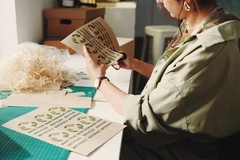Adapting to regional demands, demographics and regulations in the e-commerce sector

07 Aug 2024 --- The e-commerce industry is young but fast-paced, challenging packagers to be agile, innovative and flexible with its offerings to continuously support its customers and stay ahead of the market, according to experts.
We speak to analysts and producers who identify global customer demands for uniform standards and regulations. Meanwhile, demographic differences regarding e-commerce packaging demands are noticeable, they explain, with Europe leading in legislation, a fragmented US packaging waste landscape and Boomers ranking highest in sustainability demands.
Nedim Nisic, Mondi Group’s e-commerce director, tells Packaging Insights that for brands, the significance of getting their e-commerce packaging right cannot be overstated. It often serves as the initial interaction point between consumers and the brand.
Online shoppers have high expectations for a brand’s e-commerce packaging, with a negative unboxing experience, particularly overpackaging, being a major turn-off for nearly half (47%) of them. Similarly, 45% of shoppers would not repurchase from a brand with non-recyclable packaging, according to Mondi.
Meanwhile, Suzy Gedney, Smurfit Kappa’s UK marketing manager, recently told us that it is important for brands to leverage the demand growth in omnichannel customer experiences and ensure the customer journey is seamless.
“Unboxing videos have grown to over 25 billion in recent years, with 62% of unboxing video viewers detailing that they use these as a way to inform their buying decision,” she highlights.
Online shoppers have high expectations for a brand’s e-commerce packaging and are overpackaging averse.With e-commerce packaging and paper, finding the balance between design, performance, raw materials used, fit to logistic requirements and pricing is crucial. “We understand that this can be challenging, but we see our customers’ challenges as our challenges,” says Nisic.
“We invest time in understanding their needs because we believe that every product shipped faces different challenges that need to be solved. This approach ensures that our solutions are not just effective but also tailored to our customers’ specific requirements.”
Finding the right machinery
Mondi recently partnered with Italy-based packaging technology provider CMC Packaging Automation. Mondi provides kraft paper for its machines, and CMC will work on developing new solutions to strengthen the quality and sustainability of Mondi’s e-commerce packaging portfolio.
In 2013, CMC introduced the first fully automated right-sized packaging machine, revolutionizing how online orders are fulfilled in warehouses. This “box last” concept packages single and multi-line orders in ready-to-ship boxes that are custom-sized for each item, reducing shipping volumes and eliminating the need for void fill.
“Today, we have expanded our portfolio to also include right-sized paper wrapping solutions to meet the needs of the apparel and fashion industry,” Marco Mozzaorecchi, area manager at CMC Packaging Automation, tells us.
“Our industry-leading solutions address various challenges, including flexibility and versatility, speed and efficiency, product protection, sustainability, footprint, data Integrity and customer experience.”
Regional sustainability and excessive materials
Consumers are increasingly aware of the environmental impact of e-commerce packaging, particularly the waste generated, plastic pollution and the carbon footprint associated with last-mile delivery, says Mozzaorecchi.
“As a result, packaging technology suppliers must focus on developing solutions that reduce consumable use, promote eco-friendly materials and optimize shipping volumes.”
He stresses that the global trend toward sustainable e-commerce packaging varies by region.
“For instance, Europe has recently introduced stricter regulations through the Packaging and Packaging Waste Regulation. This regulation aims to reduce packaging waste and enhance the recyclability and reusability of materials.” Consumers are increasingly aware of the environmental impact of e-commerce packaging, including the waste generated.
Consumers are increasingly aware of the environmental impact of e-commerce packaging, including the waste generated.
“A key provision mandates that e-commerce packages contain no more than 50% empty space, encouraging optimization to reduce unnecessary material use and transportation inefficiencies. Compliance with these new rules is crucial for companies to avoid penalties and necessitates investment in sustainable packaging solutions.”
The US approach to packaging waste management is more fragmented compared to the EU, largely due to the complex interplay of federal, state and local regulations.
However, Mozzaorecchi notes there is a growing recognition among the company’s clients of the need for more uniform standards and regulations to effectively address packaging waste.
“The demand for sustainable packaging in the Asia-Pacific region is also growing, though at different rates across countries. Despite ongoing requests for poly wrapping in some Asian markets, our technology is designed to be paper-ready and upgradable for future sustainability needs.”
Influence of age on sustainability demands
Meanwhile, Nisic highlights the growing demand for sustainable e-commerce packaging over the last five years.
“Consumers increasingly prioritize packaging quality and eco-friendliness, with 88% valuing protective packaging and a substantial portion considering recyclability important,” he highlights.
“Regional differences are notable, with Turkish consumers showing a high demand for resealable packaging. The growth of e-commerce markets indicates a consumer preference for reusable packaging, emphasizing the need for e-commerce retailers to consider post-purchase behavior and align with sustainability demands in the circular economy.”
Furthermore, sentiments on environmentally friendly packaging reveal distinct differences across generations and countries.
“Interestingly, while sustainability matters across generations, it gains more significance with age. Boomers led in rating it as very important (33%), surpassing Gen Z (31%, down from 40% last year),” according to Mondi’s data.
“Across the countries we surveyed (Czech Republic, France, Germany, Poland, Sweden and Turkey), for example, nearly half (49%) of Turkish consumers consider environmentally friendly packaging to be very important, compared to only 25% in the Czech Republic,” elaborates Nisic.
Latest e-commerce packaging
Nisic highlights Mondi’s most recent e-commerce packaging innovation, the Protective Mailer, which the company co-designed with a leading online marketplace.
“Based on the demand for a broad range of sustainable packaging solutions without compromising on quality, we’ve fully eliminated plastic in this solution while maintaining outstanding protection of goods,” he says.
“This solution combines our expertise and a complete portfolio of e-commerce packaging, from kraft paper to paper bags and corrugated solutions.”
“We decided to launch this solution because it complements our existing portfolio and fully replaces the need for plastic bubble wrap in mailer bags, as it is crafted from 100% paper and is fully recyclable.”
By Natalie Schwertheim










